The image of a wartime Kyiv might be very distorted in the imaginations of people living abroad – regular massive missile attacks, residential areas destroyed by rockets, and people hiding in shelters – and is difficult to reconcile with most people’s idea of a normal life.
However, life goes on and millions of Ukrainians continue to live, work and even occasionally play in Ukraine despite all odds.
Kyiv Post celebrates seven totally normal things you can do in wartime Kyiv.
You can have McDonald’s in wartime Kyiv.
To the great surprise of people living abroad, McDonald’s restaurant chain still operates in Kyiv. In the capital and other large Ukraine cities, you can have your fav juicy Big Tasty or Big Mac menu. Missiles don’t fly over the capital around the clock, therefore, after the end of another massive shelling, people come out of shelters and continue to live their lives. What could be better for restoring the nervous system than a juicy cheeseburger with French fries?
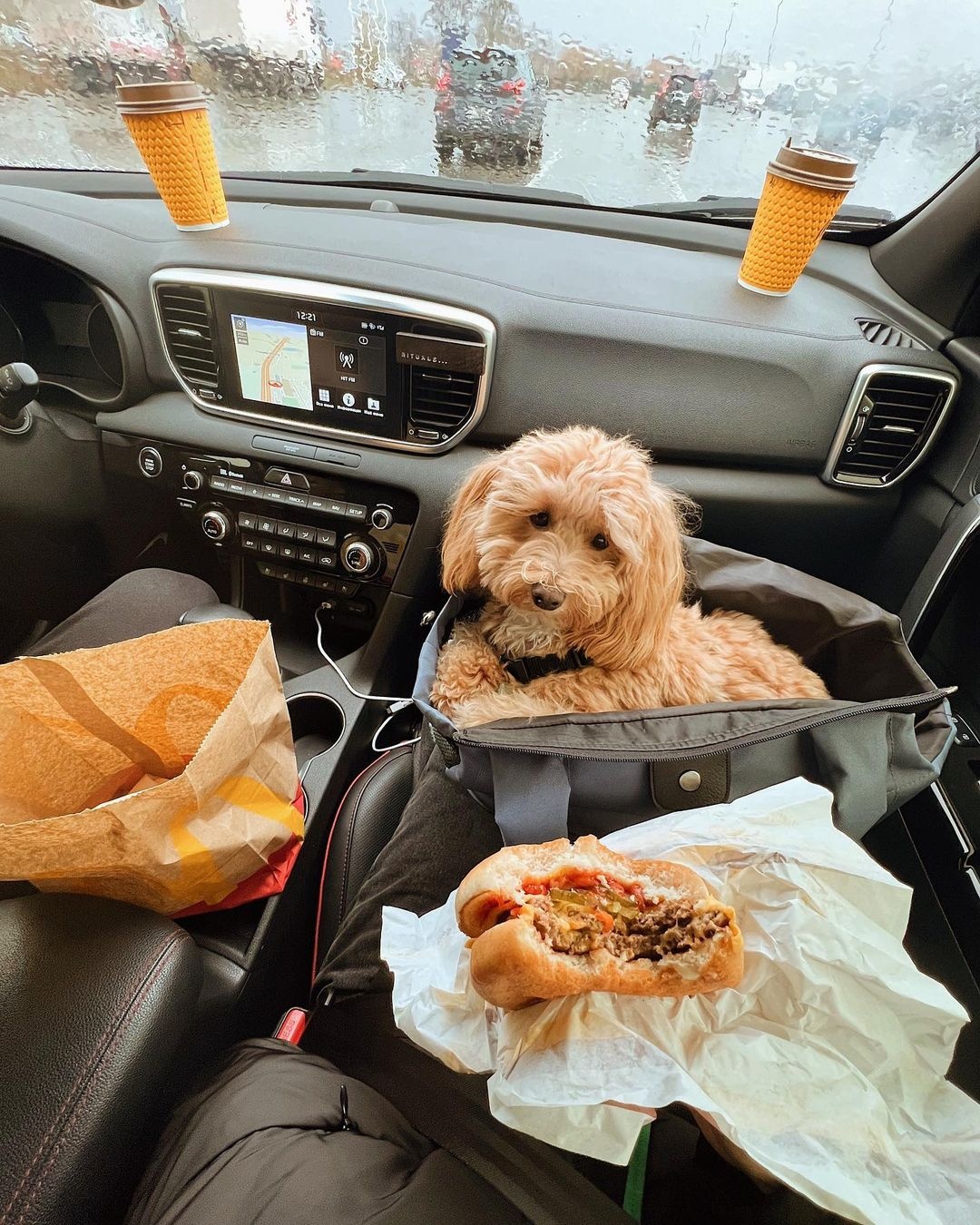
Photo credit: instagram.com/arni_the_maltipoopsik/
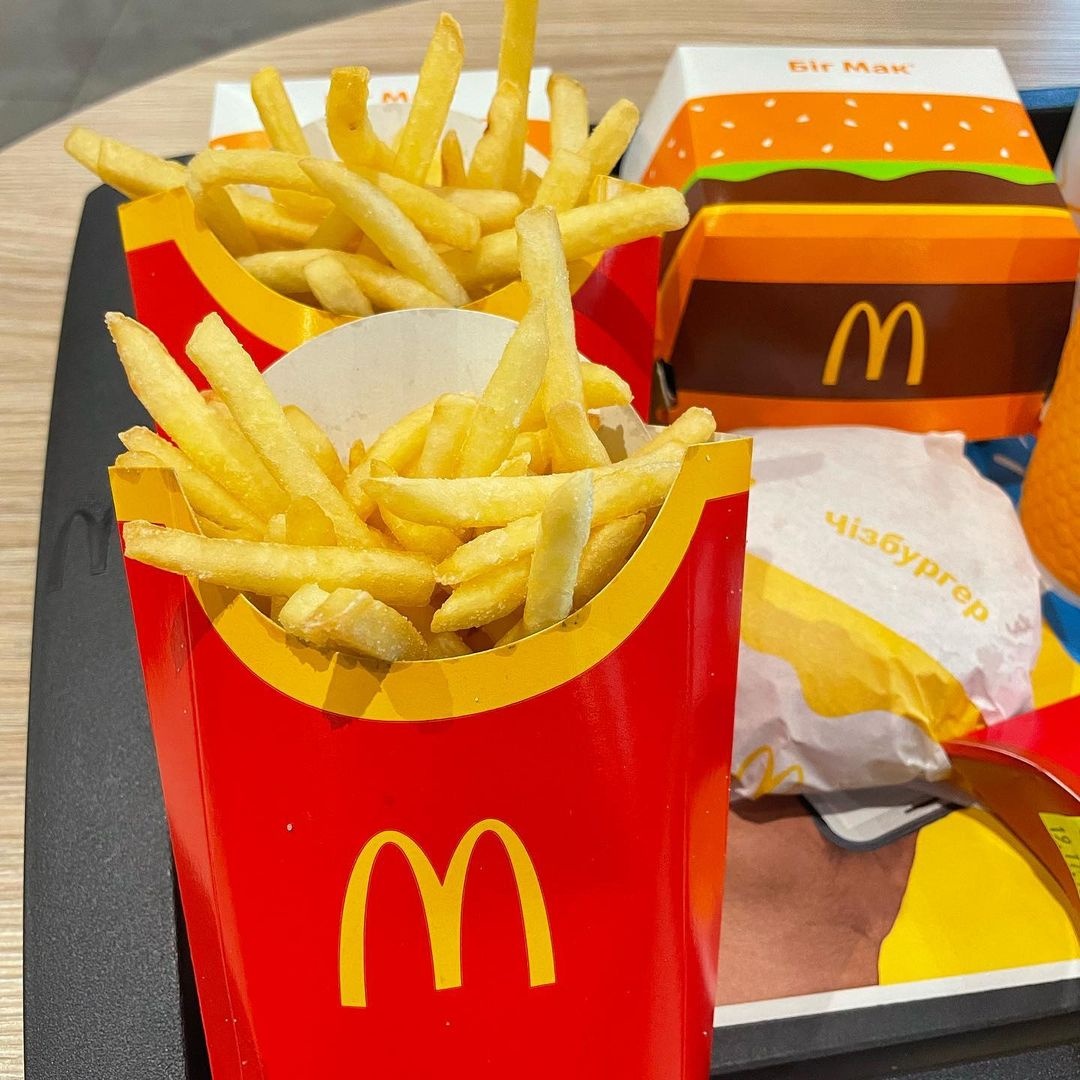
Photo credit: instagram.com/luminasomnio
BUT
The fast food chain resumed its work in Ukraine not that long ago, at the end of September. At first, there were only three restaurants operating in Kyiv, and your order could be placed only through a delivery window using an intermediary, particularly Glovo or Bolt delivery service.The queues were literally kilometers long. One could have spent at least an hour waiting for an order. Now there are dozens of their restaurants operating in Ukraine, however, some menu items are still missing.
You can go to the cinema in wartime Kyiv
Despite difficult times for the Ukrainian movie business, which began with the COVID-19 pandemic and continues due to a full-scale war, cinemas in Kyiv are still working. New films are released on schedule. Some even gather a full house.
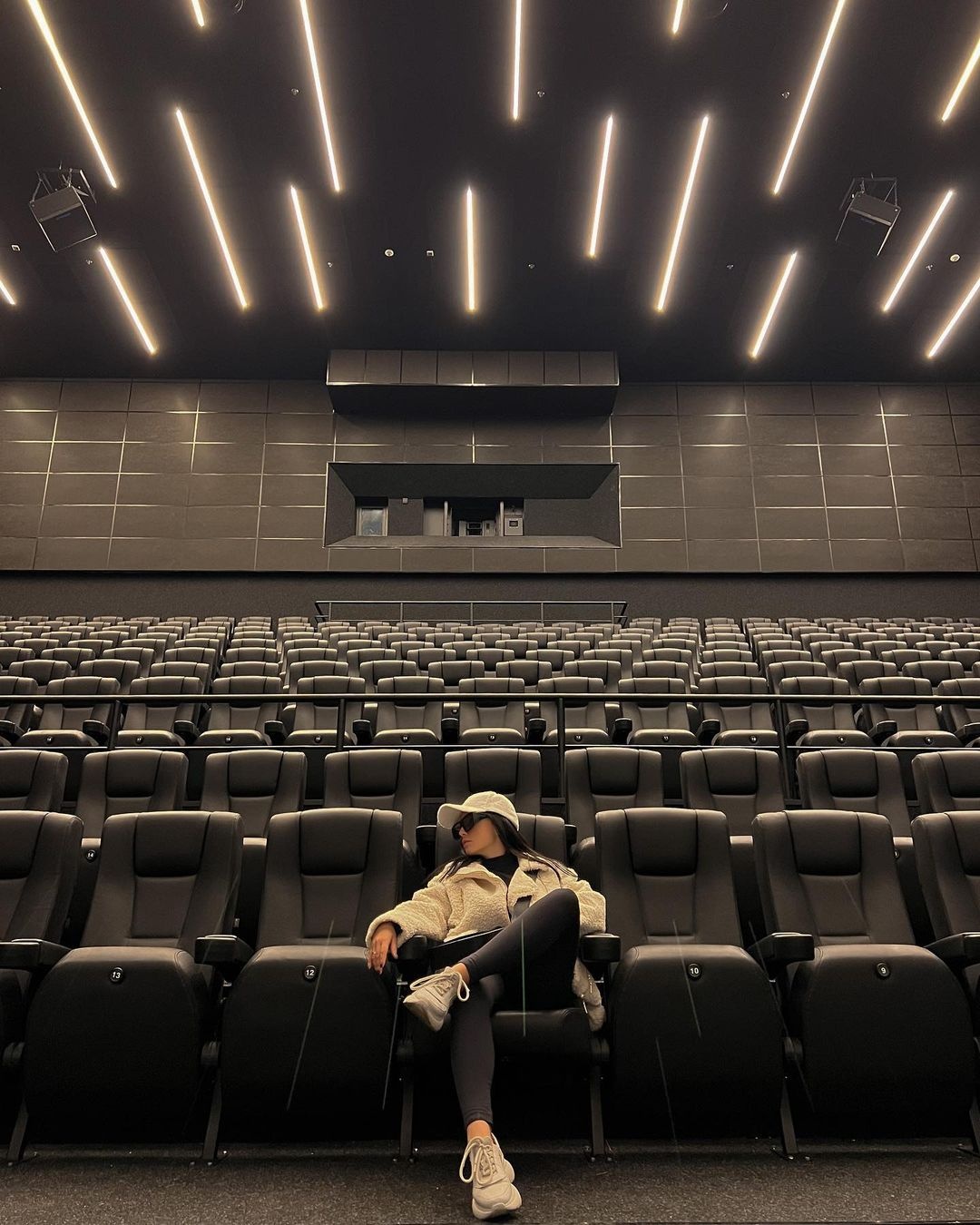
Photo credit: instagram.com/elena_gavazhko/
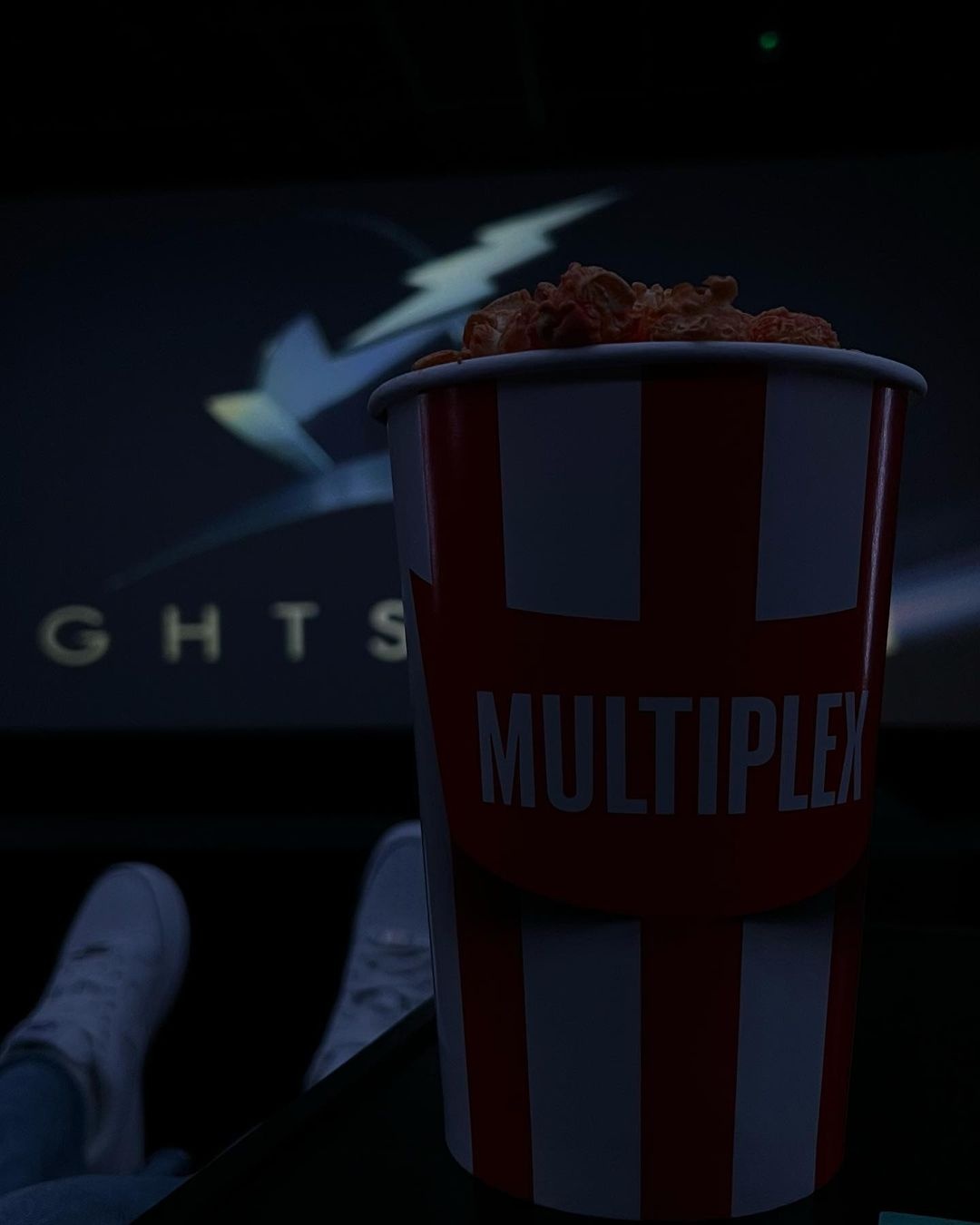
Photo credit: instagram.com/sorokina.a._/
BUT
Your movie show may be interrupted unexpectedly: during an air raid, all viewers are asked to leave the cinema hall. You will not be allowed to finish watching the movie even after the raid ends. But remember to save the ticket – you get to attend any other session on another day for free.
You can go shopping in wartime Kyiv.
Almost all major shopping centers in Kyiv are operating, which is logical as investors and businessmen do not want to go bankrupt. Moreover, the malls are not empty at all – on the weekend you can find them overcrowded.
Surprisingly, the longest queues can be found in stores with household goods. Despite the war, people are still willing to decorate their homes for Christmas, buy new towels, wine glasses, and soft pillows for the bedroom.
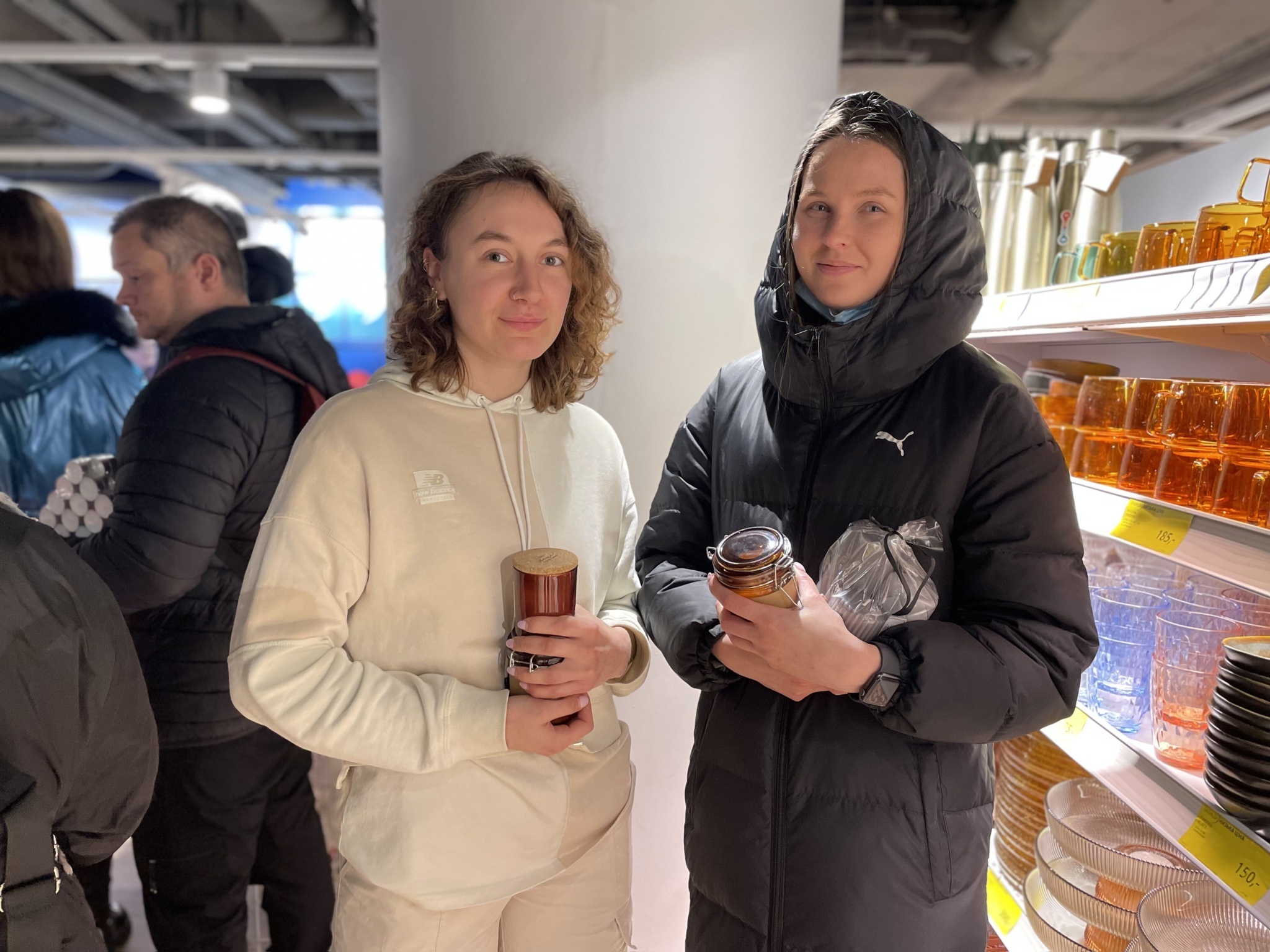
Katya and Natasha. Photo credit: Сhris York.

Photo credit: instagram.com/iryna.vynnychenko/
Clothing and electronics stores are also doing well. Despite huge problems with electricity and regular blackouts, people are optimistic about victory: They buy huge plasma TVs, food processors, and other devices that simplify our lives.
BUT
Not all boutiques in shopping malls have resumed their work since Feb. 24. Inditex, the largest fast-fashion group worldwide, has not yet returned to the Ukrainian market and probably won’t be back until the end of the war.
This has given impetus to the development of Ukrainian clothing and footwear brands. Many of them doubled, if not tripled, their pre-war profits. To support domestic products, as well as the very limited presence of global mass-market brands in the Ukrainian market, buyers increasingly prefer to wear local manufacturers.
You can go to a restaurant in wartime Kyiv (sometimes by candlelight).
The restaurant industry is undoubtedly going through very difficult times. During two years of pandemic, restaurateurs claimed that they found themselves in a situation worse than ever. Could they have imagined then that COVID-19 wasn’t actually the worst-case scenario?
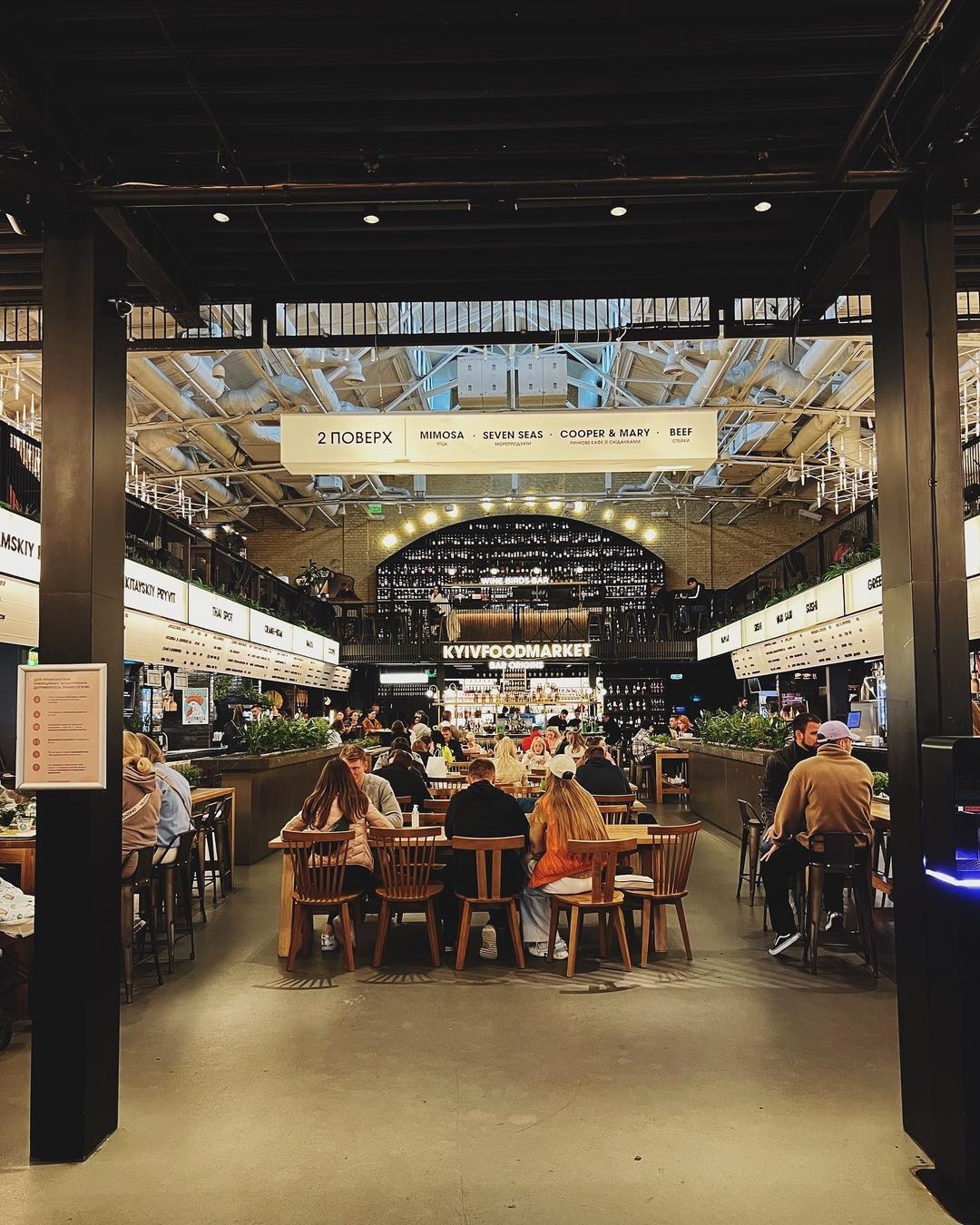
Photo credit: instagram.com/kiddo_ukr/
In the first months after the start of the full-scale invasion, restaurants suspended their work. Restaurant owners pondered how to adapt to the new wartime reality. Many were able to reform the business and stay afloat, but many were forced to close down.
There are still more survivors than losers. Moreover, as in the pre-war period, competition in the restaurant sector is extremely high. Accordingly, service is at its highest level.
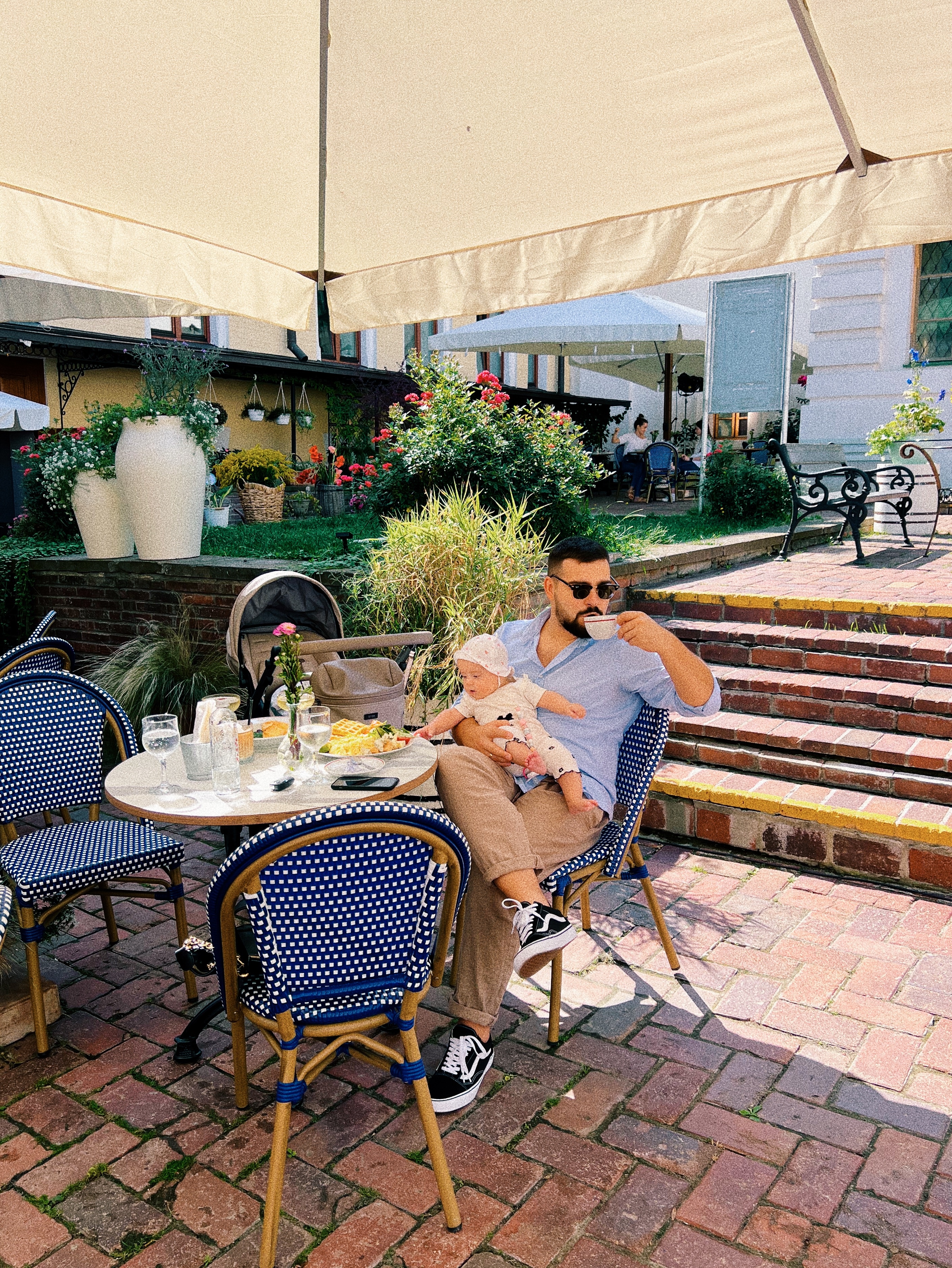
Photo credit: Alisa Orlova
Kyiv institutions have survived COVID-19, massive shelling, curfew, and reduced solvency of the population. The next call in line is a blackout. But even this challenge is accepted by restaurateurs with alacrity – using electric generators and candles.
BUT
Curfew figuratively killed many bars and nightclubs. Working at night became just impossible. During the war, bakeries, coffee shops, and fast food places became the most popular and growing configuration. After all, such places don’t require large investments to launch.
In Kyiv, you can go to children’s tournaments or a birthday party.
Life goes on despite the war and regular missile attacks. Children study, grow up and attend sports clubs and educational classes. Here, for example, is a photo from a chess tournament for children.
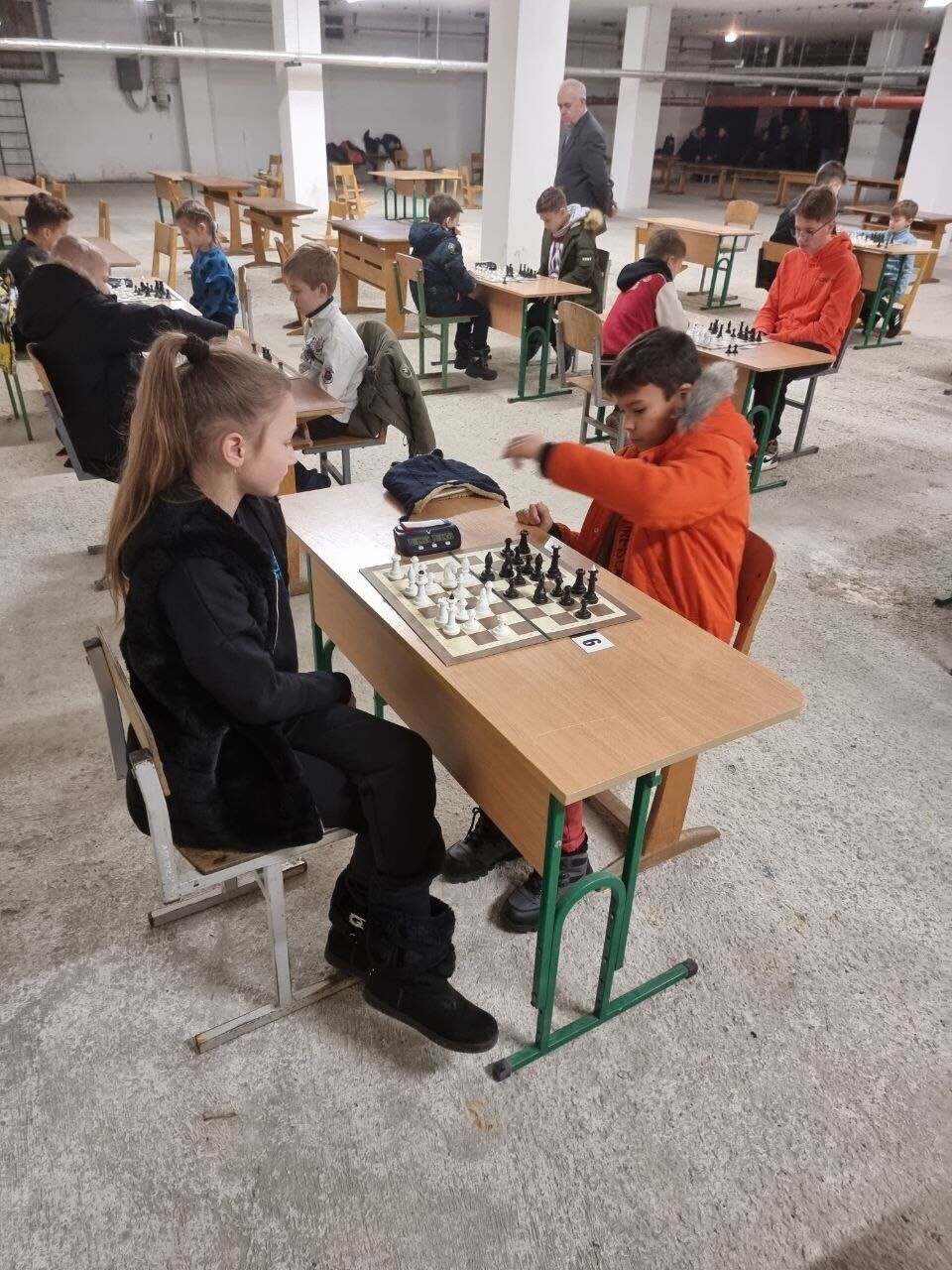
Chess tournament. Photo credit: Aleksandra Klitina.
And these are from a birthday party celebrated in the Kyiv center: Children just gathered in the basement to play video games and to eat burgers from McDonald’s.
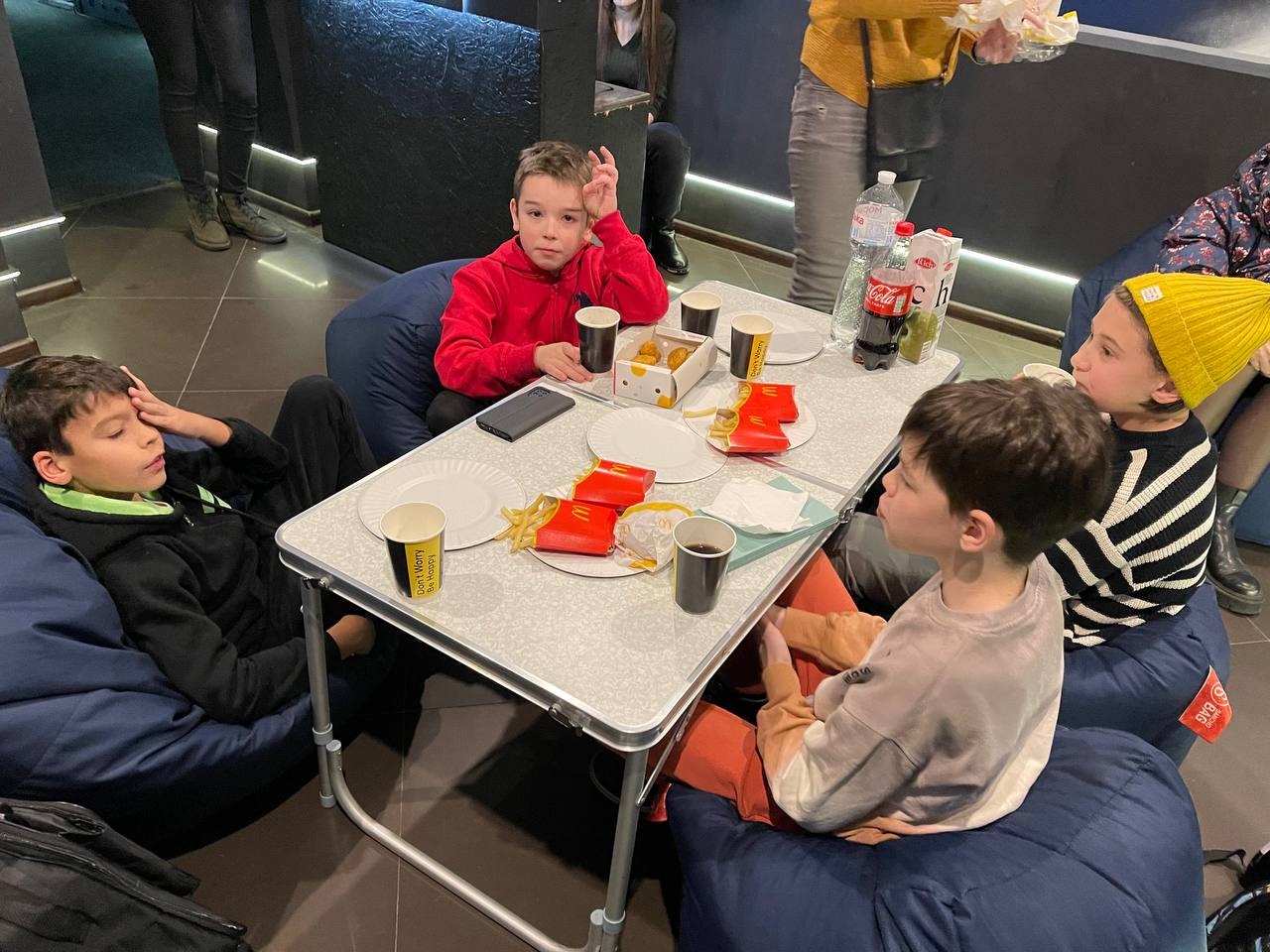
Photo credit: Aleksandra Klitina.
BUT
Children’s activities are held mainly in basements or shelters: Their safety comes first.
You can work in the office in wartime Kyiv (and work literally under fire).
Business centers are still operating in Kyiv (those that have not yet been destroyed by Russian missiles). For example, Kyiv Post editorial is still working from their offices in the center of Kyiv. To be honest, there are a number of advantages: a generator, no power outages, and a coffee machine. But the main drawback is damage to critical infrastructure nearby. Russian missiles have already hit neighboring residential houses more than once.
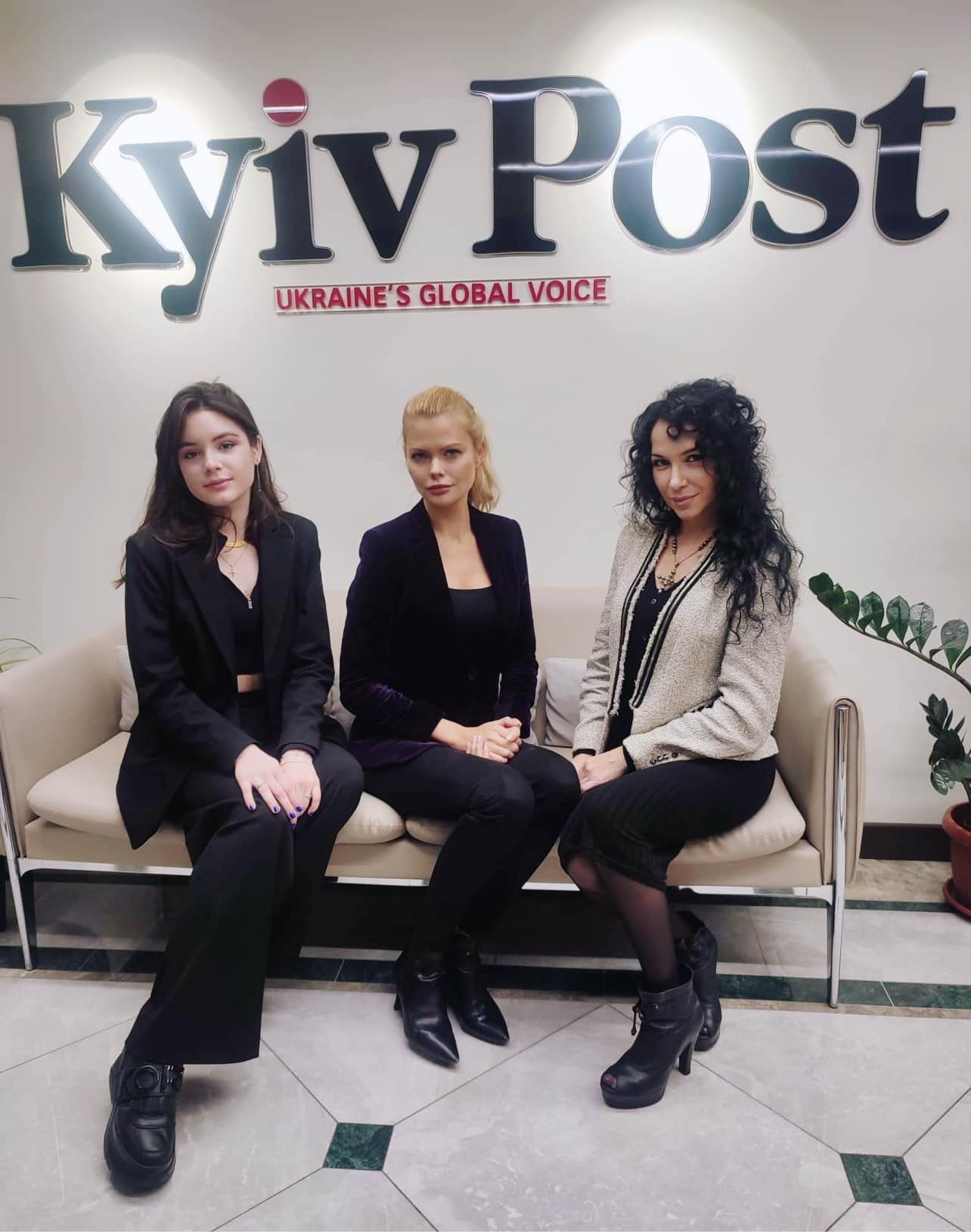
Kyiv Post’ correspondents Anna Neplii, Aleksandra Klitina, and Marichka Palamarchuk. Photo credit: Aleksandra Klitina.
BUT
Not all office workers have a place to go. The 101 Tower office center, which is located next door to the Kyiv Post editorial office, looks like this now.
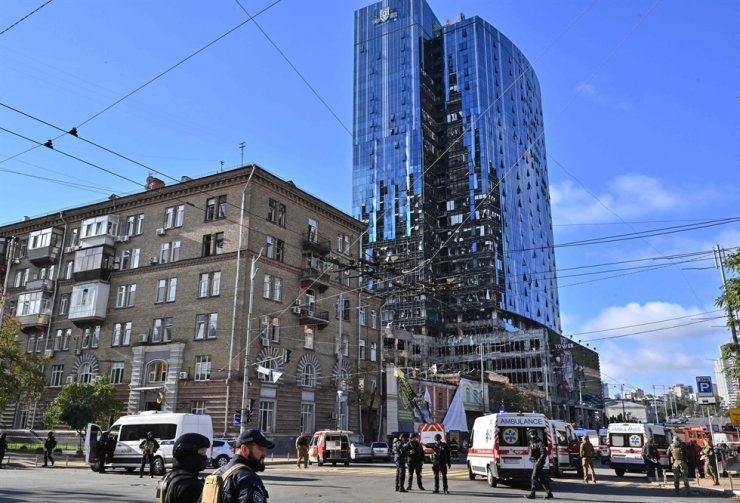
“101 Tower” business center in Kyiv, destroyed after Russian missile attack on Oct.10. Photo by AFP.
After the rocket attack on Oct.10, it was, in fact, completely destroyed. The main office of Samsung Electronics Ukraine and Samsung R&D suffered, in particular. The Microsoft office was also damaged as a result of the shelling. Fortunately, none of the employees of these companies were in the office at the time of the shelling.
You can listen to a street musician playing, even during an air raid alarm.
Kyiv residents have adapted so well to the war during the last nine months that neither air raid alarms nor ongoing rocket attacks can make them change their plans. If they find themselves drinking a cup of coffee in the park while listening to street musicians, hardly anything could make them go and hide in the shelter.
BUT
This part of the article goes without a but. The music on the streets of Kyiv will not subside under any circumstances.
However, Kyiv is fortunate in comparison with other Ukrainian cities, like Kherson, Zaporizhzhia or Mykolaiv. Not to mention Mariupol. So it is worth noting that not all Ukrainians are able to enjoy their lives against all odds. Sometimes the odds are too hard to overcome.



